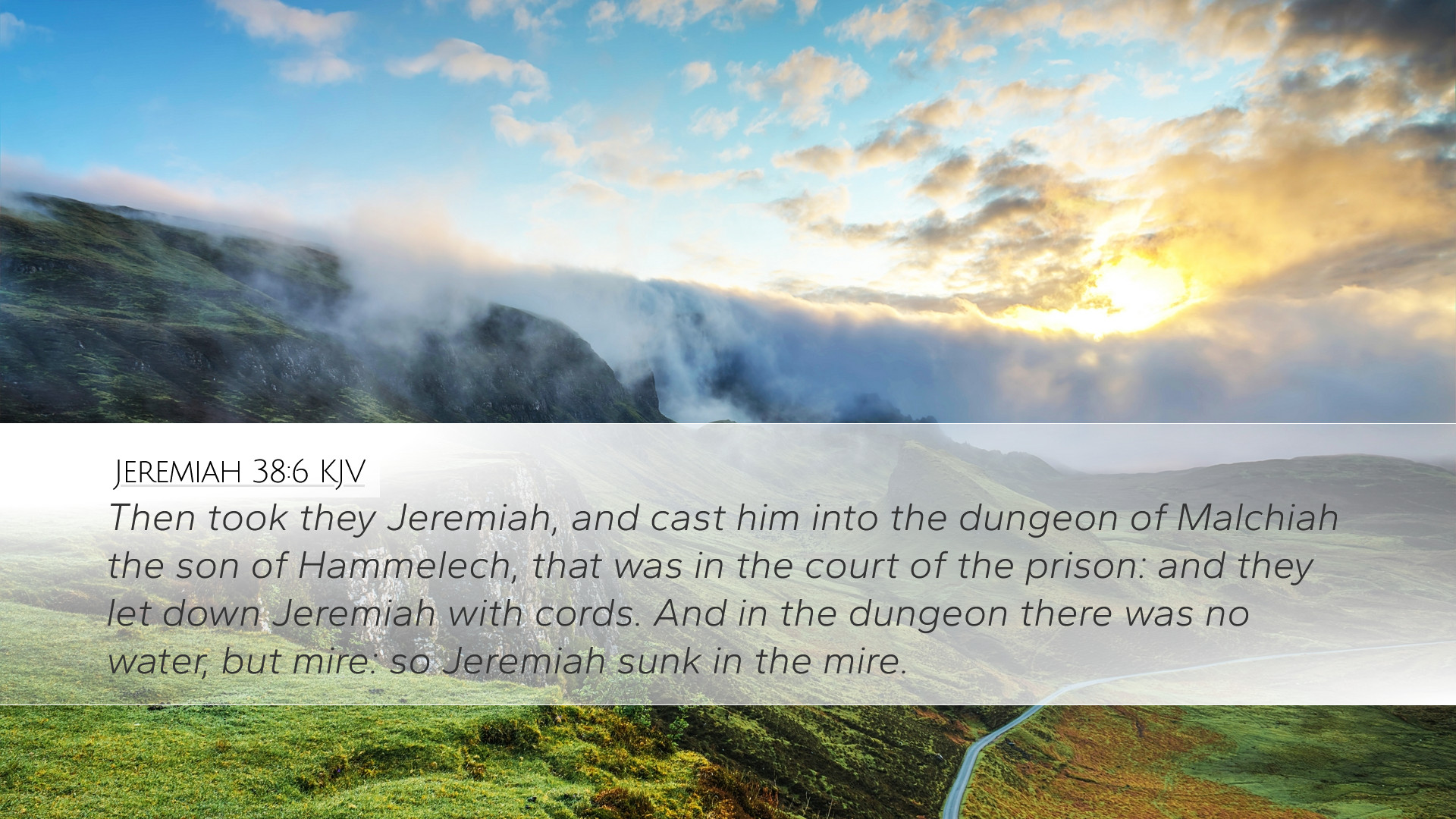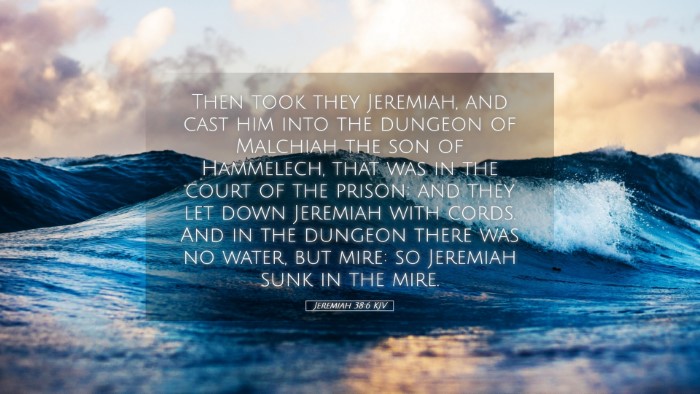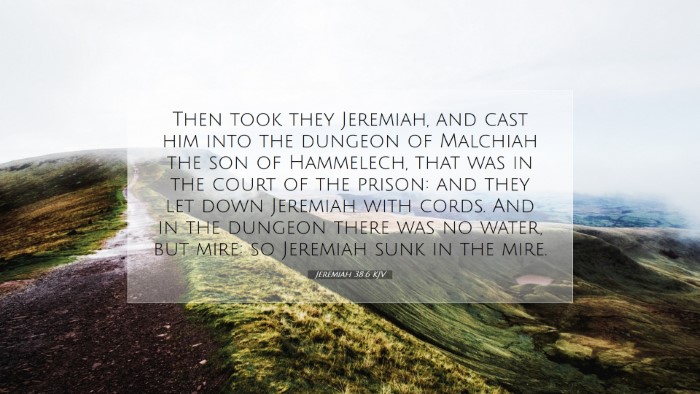Commentary on Jeremiah 38:6
Verse: "So they took Jeremiah and cast him into the dungeon of Malchiah the son of Hammelech, that was in the court of the prison: and they let down Jeremiah with cords. And in the dungeon there was no water, but mire: so Jeremiah sunk in the mire."
Contextual Overview
Jeremiah, known as the "weeping prophet," faced tremendous opposition for delivering God’s messages to the people of Judah during a time of impending devastation. This passage illustrates a critical moment whereby he was persecuted for his prophetic warnings, reflecting the historical narrative of his ministry.
The Significance of the Dungeon
Matthew Henry's Commentary: The dungeon represents a place of isolation and suffering, echoing the fate of many prophets who are marginalized for speaking truth. By being cast into a dungeon with mire instead of water, it symbolizes the depths of despair to which anyone may sink when rejecting divine counsel.
Albert Barnes observes: The dungeon was essentially a cistern designed for storing water, yet Jeremiah’s experience in it denotes a spiritual dryness of the people. Even as he sank in the mire, it highlights the barriers created by sin that prevent access to the life-giving water of God’s word.
Jeremiah's Suffering and Isolation
Adam Clarke explains that: The act of lowering Jeremiah with cords indicates not only the physical suffering he endured but also the intention behind it. His detractors sought to silence him, showing how the world often opposes those who convey difficult truths.
This act of suffering should resonate with modern believers who may find themselves isolated within their communities or workplaces for their faith. Indeed, it raises essential questions regarding the cost of discipleship and the perseverance required amidst trials.
The Implications of Divine Warning
Matthew Henry emphasizes: Jeremiah's prophetic voice was not simply a message of doom; it was also one of warning and opportunity for repentance. Each act of persecution illustrated the obstinacy of the people of Judah in rejecting God's mercy.
- Spiritual Insight: Those called by God must be ready to face opposition. Jeremiah’s situation urges contemporary leaders to embrace their call to deliver God’s word faithfully, irrespective of public reception.
- Reflect on Prophetic Accountability: The scripture invites us to consider our own responsiveness to the message of God, echoing the truth that responding to God's truth is essential for spiritual vitality.
Lessons on Resilience
Albert Barnes reflects: In Jeremiah's plight, believers are encouraged to find resilience. Even when the environment seems desperate, like sinking in mire, God’s presence is a reminder that hope remains. The believer’s challenge lies in holding onto faith during adversity.
Resilience is a key theme in the life of Jeremiah. His continuous interaction with God amidst suffering serves as a model for prayer and reliance on divine strength, providing a framework for contemporary believers facing their own trials.
Theological Implications
Adam Clarke posits: This verse illustrates the recognition of God’s sovereignty over the affairs of men. Despite Jeremiah’s grim circumstances, he remained God's instrument, affirming that God’s plans prevail even in the face of human opposition.
This verse invites profound theological reflection: what does it mean to remain faithful to God’s calling in the face of suffering? It challenges pastors and theologians to consider how God’s sovereignty plays a role in their own ministries and the lives of their congregations.
Conclusion
Jeremiah 38:6 provides insight not only into the life of a prophet but also serves as a timeless reminder of the challenges faced by those who communicate God’s truth. It compels modern readers to contemplate their response to prophetic voices today while encouraging perseverance amidst opposition.
In conclusion, as we reflect on Jeremiah’s anguished experience and the broader implications of his ministry, let it inspire a commitment to faithfulness regardless of the circumstances. Let us reassure ourselves that God’s words and warnings are often given for our benefit, calling us to renewed faith and obedience.


